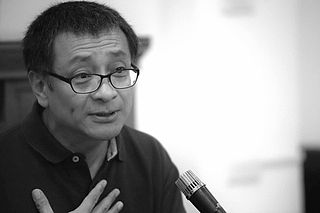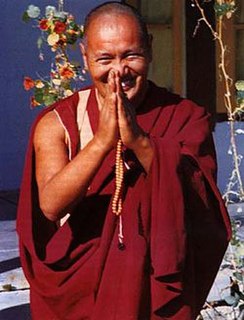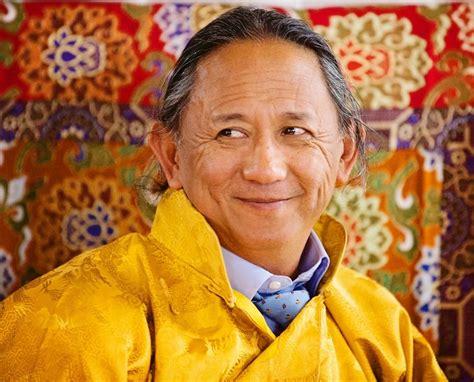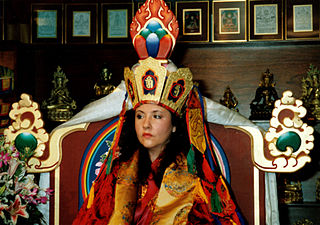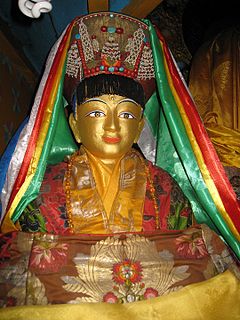A Quote by Dzogchen Ponlop Rinpoche
Meditation is simply getting to know your mind.
Related Quotes
Meditation is not of the body, not of the mind, not of the soul. Meditation simply means your body, your mind, your soul, all functioning in such a harmony, in such wholeness, humming so beautifully... that they are in a melody, they are one. Your whole being - body, mind, soul - is involved in meditation.
Meditation simply means a discipline that makes you capable of being aloof and detached from your mind. So even if the mind is sick, your consciousness is never sick. Even if your mind is going crazy, you are just witnessing it. Mind is only a machine. You are not. Meditation is the experience: "I am not my body, not my mind - I am the witness of it all." This experience, this transcendental experience, immensely transforms the whole situation. Many things which were driving you crazy simply drop away.
Except witnessing, I don't teach anything else. So just witness your mind and the meditation will be happening. And once you have got in tune with your being, you know the way, you know the how. Then it does not matter where you are. Alone or in the crowd, in the silences of the forest or in the noises of a marketplace, it is all the same. You can simply close your eyes and disappear inwards.
Meditation means awareness. Whatsoever you do with awareness is meditation. Action is not the question, but the quality that you bring to your action. Walking can be a meditation if you walk alertly. Sitting can be a meditation if you sit alertly. Listening to the birds can be a meditation if you listen with awareness. Just listening to the inner noise of your mind can be a meditation if you remain alert and watchful. The whole point is: one should not move in sleep. Then whatsoever you do is meditation.
Dhyan means meditation. Meditation means awareness, watchfulness, a silent witnessing of all the processes of the mind. And the magic of watching is that as your watchfulness deepens, the mind starts evaporating. When the watchfulness is absolute mind becomes nil, a zero. And the disappearance of the mind gives you clarity, absolute clarity, transparency; you can see through and through, you become a mirror. And then life is reflected as it is - not according to any doctrine, not according to the Bible or the Koran or the Gita but as it is. And to know life as it is, is to know god.
In the East we call this state meditation: no belief, no thought, no desire, no prejudice, no conditioning - in fact, no mind at all. A state of no-mind is meditation. When you can look without any mind interfering, distorting, interpreting, then you see the truth. The truth is already all around; just you have to put your mind aside.
